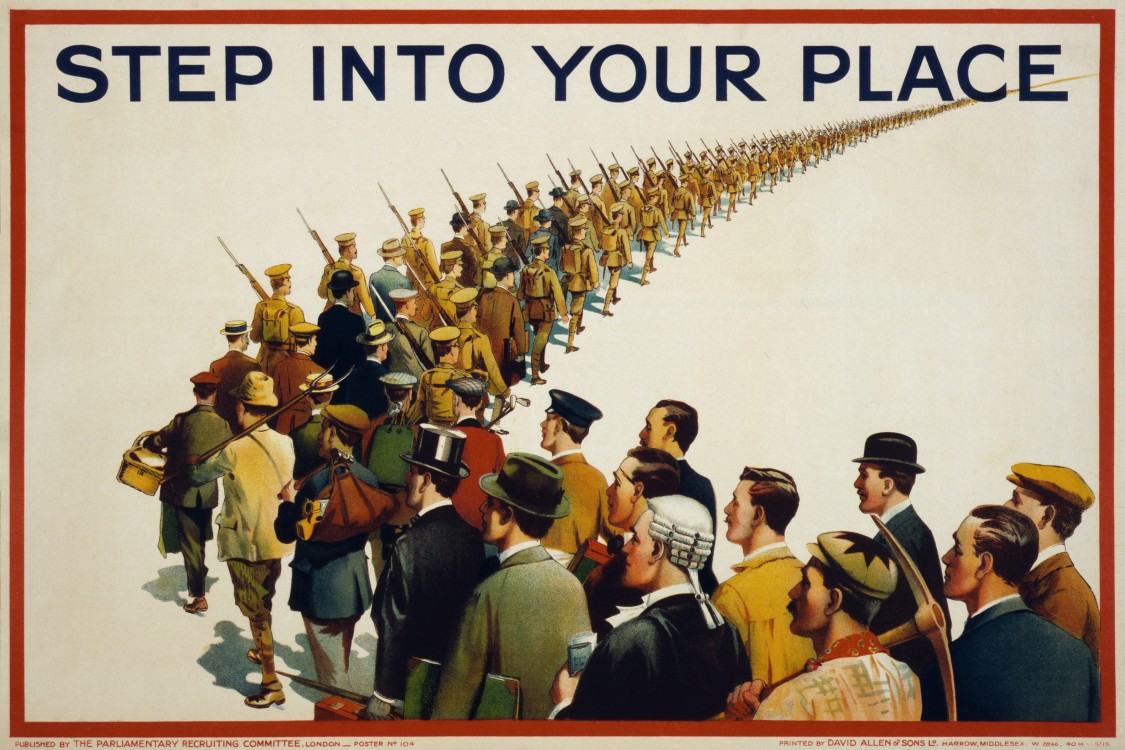
A new brand of fascism and far-right ideology is on the march, with demagogues moving towards power from Austria to the U.S., France to Finland, Greece to Germany. These far-right shifts share a clear link to 1930s fascism, but their ideology has also been refocused and repackaged.
One new emphasis is Islamophobia. Another core focus is against immigration and refugees more broadly. Compared to the 1930s, there is less scapegoating of political enemies; it is often overlooked how many communists and anarchists were principle targets in that era. Also less discussed today is the relationship between capitalism and fascism, as well as other racist political surges.
Past and Present
Revisiting 1930s fascism offers a clearer lens to consider what is happening today. The mainstream history of fascism tends to focus mainly on the Nazis, making scarcer reference to Benito Mussolini, Gen. Francisco Franco and other proto-fascists of the era. From a capitalist-establishment perspective, this focus deflects attention away from the British and U.S. history of genocide, ethnic cleansing, war and slavery. The way Nazism pervades modern thinking through history also explains why there are so many neo-Nazi groups; in comparison it is rare to find neo- Mussolinists, neo-Francoists and also neo-imperialists.
Within mainstream discourse, Hitler's rise to power is of central interest, providing lessons for similar conditions not to be repeated. The new Weimar democracy in Germany collapsed after the 1929 Wall Street Crash, but Weimar was more or less doomed to fail anyway since Germany was expected to pay astronomical reparations for WWI; the Social Democrats were viewed as the "November Criminals." Nazis grew in a power vacuum with a message of scapegoating both the Social Democrats and outsiders in general, the latter building on euro-centric white supremacist thinking. These are all important parts of the timeline.
Another emphasis in mainstream history is given to Hitler personally. He is written about far more than any fascist or genocidal dictator. The orthodox version of how Nazism took hold highlights Hitler’s backstory – the failed artist whose hatred of Jews began in Vienna – alongside his rhetorical ability and political opportunism. But history often neglects a crucial detail.
The 1930s elite, or 1%, were big business often linked to American investment, and fundamental in sponsoring Hitler’s rise to power. Capitalists who invested in Nazi Germany were lucratively rewarded. Nazi economic policies provided higher returns compared to the U.S. and other large nations during the period. The concept of "privatization" itself traces back to Nazi Germany.
Yet, looking back at this period today, capitalist firms' support for, and profit from, Nazism seems almost airbrushed out of history. Many current household brands gained directly from the Nazi state and the Holocaust, including Volkswagen, Siemens, Bayer and Hugo Boss. International corporate benefactors include Chase, Ford, L’Oréal and Coca-Cola. The latter made Fanta to sell to Germans during the war.
Turning attention to Mussolini, the Italian dictator explicitly said that fascism was the marriage between corporate power and the state. In practice, Mussolini’s policies benefitted businesses such as carmakers Fiat and Alfa Romeo. In Spain, the same was repeated with Franco’s rule and its legacy. With no reconciliation since the dictator’s death, the Spanish establishment remains criticized to this day as the same few hundred families who are holding the country to ransom.
Fascism, it seems, is not a threat but a guarantor for some capitalists. Of course, so long as those capitalists aren't members of a repressed minority. Strong evidence shows the relationship between capitalist donors and the far-right continuing strong today.
In April 2015, the Dutch paper Trouw printed an account of a meeting between Dutch politician Joram van Klaveren and British far-right UK Independence Party (UKIP) representatives. The far-right Dutch politician alleges that UKIP offered to act as middleman to offer funding to far-right groups from the Heritage Foundation, a Washington, DC-based think-tank that helped make neoliberalist policies central to Ronald Reagan’s presidency.
A more detailed explanation of the Heritage-UKIP-far right funding accusations was published by Corporate Observatory, which asserts that alongside U.S. big business, Russian oligarchs are also funding the European far-right.
Yet not all fascism or fascist acts are bankrolled by billionaires. If we look at Hitler’s backstory, we find many other reasons why he joined and then renamed the Nazi Party. It seems credible to assert that many modern-day fascists are driven by their own personal hatred of groups of the "other," rather acting at the behest of big money sponsors. Anders Breivik, the Norwegian mass murderer and terrorist, is an extreme example. The murder of Jo Cox, the MP in Britain, just prior to the Brexit vote is another.
Yet it is also essential to explain how fascism builds from both the historical and the political landscape of its period. Take the case of Hitler and his fellow founders of the Nazi Party, who built their ideology atop proto-fascism and European racism/white supremacy – a great deal inspired by 18th and 19th century pseudo-science that had previously justified the slave trade and imperialism.
In contrast, fascists working alone, such as Breivik and Jo Cox’s murderer, do not develop in a vacuum. Their ideas come from both historical fascism – who were themselves bankrolled by (some) capitalists – and feed off the modern racist/fascism surge which is itself pushed by corporate media, corporate politicians and so on. Where the boundary lies between corporate-funded hatred and the personal agency of a fascist is complex. But to understand how the surge of fascism and racism really works, it may be more interesting to consider how both bring benefits to their corporate sponsors – a theme we'll be examining in part II of this series next week.
3 WAYS TO SHOW YOUR SUPPORT
- Log in to post comments
















